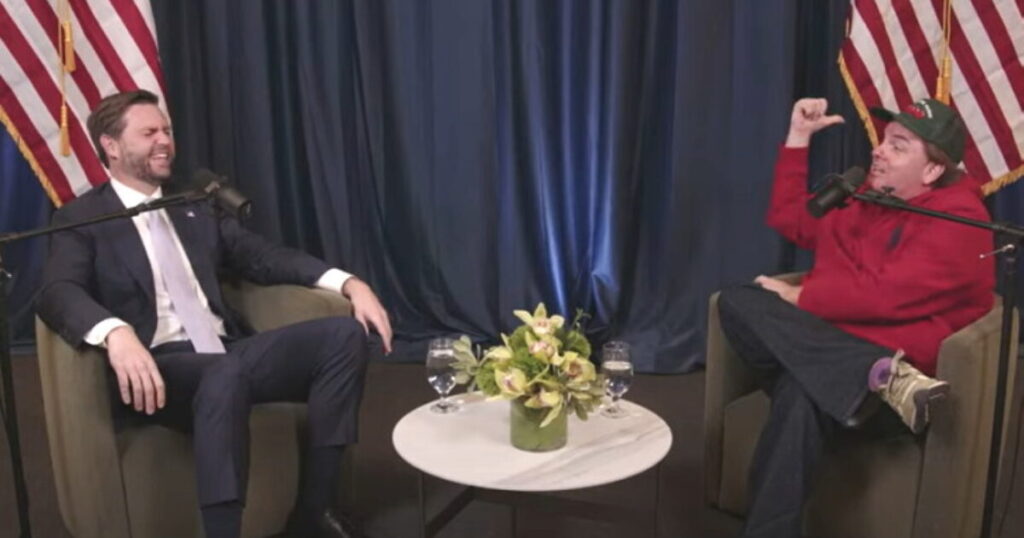This week, a noteworthy intersection of political commentary and entertainment took place, with former President Donald Trump appearing on the Joe Rogan Experience while his potential running mate, JD Vance, was featured on Tim Dillon’s podcast. The simultaneous engagements highlight a strategic alignment between these two notable figures from the political and media landscape, as Rogan and Dillon are known to be friends. Vance’s appearance on Dillon’s show was especially intriguing, given Dillon’s unique status as a right-leaning comedian, suggesting a blend of humor and political discourse that has become characteristic of contemporary media interactions.
On the Tim Dillon podcast, which lasted around 90 minutes, JD Vance and Dillon engaged in a lively discussion that revolved around a variety of topics. Throughout the episode, Vance was seen enjoying the humor, especially as Dillon took aim at Vice President Kamala Harris and her campaign with his signature sarcasm. Such comedic commentary is typical of Dillon’s style, blending political critique with humor, allowing for a more palatable exploration of contentious subjects. Moments like these serve not only to entertain but also to illustrate the cultural dynamics at play in political discourse today.
A particularly amusing highlight from the episode came during the discussion of former Vice President Dick Cheney and his daughter, Liz Cheney. While discussing their political positions, Dillon expressed his mock fondness for the Cheney family, stating, “To me when I think about democracy, I personally think about Dick Cheney.” This hyperbolic compliment drew laughter from Vance, showcasing how humor can serve both as a tool for critique and a means to underscore the absurdities of political figures in contemporary politics. The exchange reflected a broader trend where political figures become subjects of satire, thereby reflecting the public’s complex attitudes toward their legacies.
Vance’s engagement in the comedic roasting demonstrated his adeptness at participating in light-hearted banter while still touching on serious topics. His comment regarding Dick Cheney as a champion of democracy offered a striking example of how public figures can navigate the thin line between humor and serious political commentary. This ability not only enhances his appeal among certain voter demographics but also positions him as a relatable politician who can engage with cultural trends, a quality that is increasingly valuable in today’s political landscape.
The humor and camaraderie between Vance and Dillon contrasted starkly with the often serious tone of traditional political discussions, suggesting a shift in how politics is communicated to the public. By leveraging humor, they manage to create an engaging platform that draws in listeners who may not typically engage with political content. This trend towards comedic political commentary reflects a changing media environment where audiences are gravitating towards figures who can articulate their political beliefs in a relatable and entertaining manner.
In conclusion, JD Vance’s appearance on Tim Dillon’s podcast exemplifies the evolving relationship between politics and entertainment, showcasing how humor can serve as a vehicle for political expression and engagement. The light-hearted banter between Vance and Dillon transcends conventional political discourse, making it more approachable for a broader audience. As public figures like Vance embrace this comedic approach, they not only strengthen their personal brands but also reflect a new era in which politics is increasingly intertwined with entertainment, prompting recalibrations in how political messages are received by the public at large.

